myHIN Blog

March 20, 2014
College-Age Generation and the Affordable Care Act (ObamaCare)
In February 2014, @myhealthimpact and @medicalmentors held a Twitter chat (#MedTechImpact) to discuss the importance of the Affordable Care Act (#ACA)for the college-aged population. The chat included experts from the Congressional Black Caucus Foundation, Howard University, Booz Allen Hamilton and the Maryland County Department of Health and Human Services.

Topics included: common misconceptions about the Affordable Care Act; finding #ACA online information; why should college students and the college-age population have health care coverage; advantages and disadvantages of the Act. We also discussed how the Act encourages workforce development diversity among medical and health providers as well as information and computing technologists.
The infographic below can be found on the myhealthimpactnetwork.org site and/or here directly and lists some key facts regarding the #ACA. The word cloud shows the keywords from the chat including students, health, college, join, patient and tech. As discussed during the Twitter chat and shown in the infographic, the #ACA will:
- Enable young people to stay on their parents’ health insurance until age 26.
- Provide coverage for preventive care.
- Provide preventive care and screenings for #HIV, #depression, #diabetes and many others.
- Provide care even for those with pre-existing conditions.
The final day to register for health coverage is March 31, 2014. #GetCovered. Check out the details for yourself. Inform. Educate and empower yourself. See https://www.healthcare.gov/young-adults/

Share
Comments
comments powered by DisqusIn Partnership with: Poole College of Management, College of Humanities and Social Sciences, National Science Foundation, Penn State
Take Action, Get Tested: Find Your Local Testing Center Why Get Tested?
